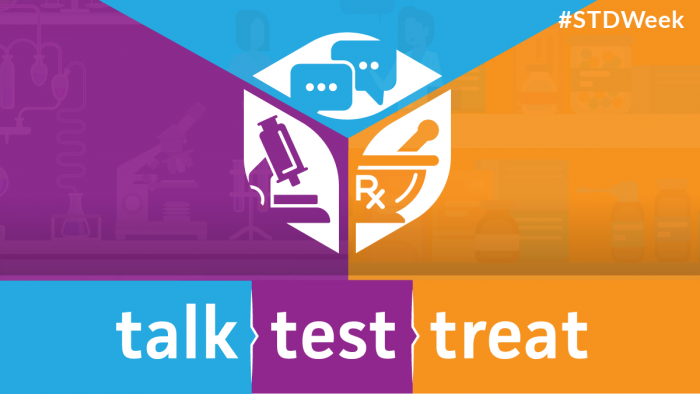April 18th, 2020- The CDC made the official decision this year to transition the historically observed STD Awareness Month of April to a STD Awareness Week. This week of April 12th-18th marked its beginning.
Sexual health is a vital part of individual health. Understanding the importance of testing and treatment goes beyond simply having the knowledge about the many Sexually Transmitted Infections/Diseases. It extends profoundly towards prevention and decreasing spread. Below are important suggestions created by the CDC for both healthcare providers and community members to increase the conversation, testing, and treatment around STDs/STIs, and ultimately aim to reduce the stigmas surrounding them.
TALK
Providing the best medical care possible means talking about sexual health.
Taking a sexual history should be a part of routine care.
- Talking about sexual health can be challenging but studies show that patients want to be asked about sex.
- Having an environment that is open to an honest discussion around sexual history—success in this area can garner important information that will allow the best care possible.
Consultations by healthcare providers on safe sex ensures patients know about today’s many prevention options. With condoms, hepatitis B and HPV vaccines, and even a daily medication to prevent HIV infection – there have never been more ways for protection.
Certain STD diagnoses can cause fear and anxiety.
- These CDC counseling messages 2015 STD Treatment Guidelines can help alleviate these concerns.
TEST
Test for STDs as recommended.
STD screening recommendations often differ by patient populations. Below is a brief overview:
- Syphilis, HIV, chlamydia, and hepatitis B screening for all pregnant women, and gonorrhea screening for at-risk pregnant women starting early in pregnancy, with repeat testing as needed, will protect the health of mothers and their infants. (NOTE: Detailed screening recommendations for pregnant women also are available here.)
- Annual chlamydia and gonorrhea screening of all sexually-active women younger than 25 years, as well as older women with risk factors, such as new or multiple sex partners, or a sex partner who has an STD.
- Screening at least once a year for syphilis, chlamydia, and gonorrhea for all sexually active gay, bisexual, and other men who have sex with men (MSM).
- All adults and adolescents from age 13 to age 64 should be tested at least once for HIV
Keep in mind that screening recommendations are sources of clinical guidance, not prescriptive standards. Always consider each patient’s sexual history separately alongside the burden of disease in their community.
TREAT
Follow CDC’s STD Treatment Guidelines to ensure appropriate treatment and care.
The 2015 STD Treatment Guidelines are the most current treatment recommendations for those who have, or who are at risk for STDs.
- Download the free STD Tx Guide app to your Apple or Android devices to easily access the guidelines any time you need them.
More resources on STD care and prevention can be found on the CDC website here.


